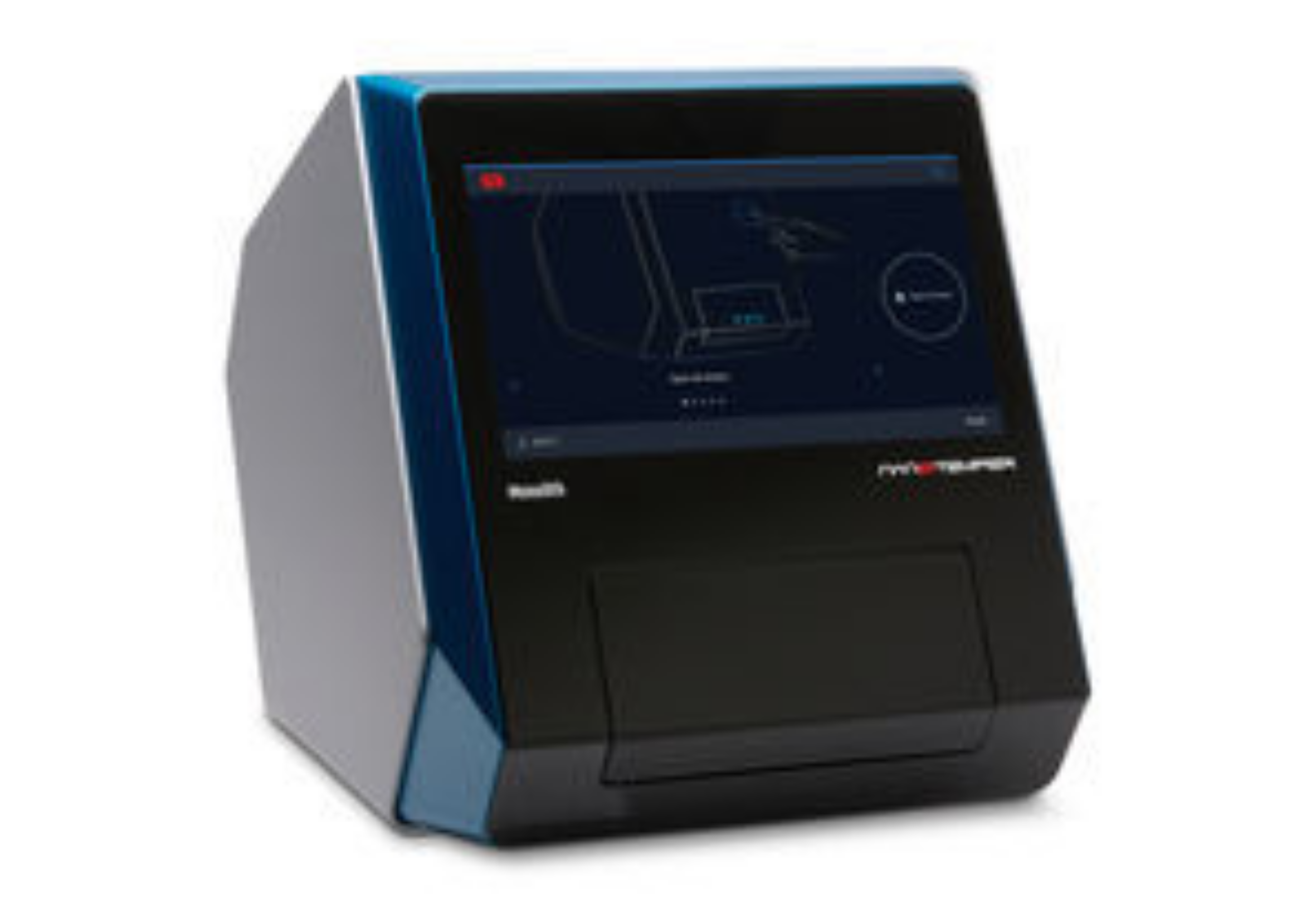Microscale Thermophoresis (MST) and Spectral Shift
Application: Biomolecular interaction
Instrument: Monolith X (NanoTemper Technologies)
Location: VBC6, room E34

MicroScale Thermophoresis (MST) is an immobilization-free technology for measuring biomolecular interactions. The MST instrument detects the motion of fluorescent molecules along a microscopic temperature gradient, which reflects changes in the molecular hydration shell, charge, or size. Since one or all these parameters will change with virtually every binding event, a wide range of biomolecules can be measured, from ions and small molecule fragments to large macromolecular complexes, in small volumes (few μL), in a wide range of standard buffers and complex mixtures.
In an MST experiment, a local temperature difference, induced by an infrared laser, leads to a local change in molecule concentration (depletion or enrichment). The directed movement of molecules along a temperature gradient is termed "thermophoresis".
In addition to monitoring thermophoresis, the spectral shift (SpS) technology in the Monolith X monitors changes in the emission at 650 and 670 nm of a fluorescent molecule, that is then reported as the 670/650 nm ratio. The changes in the emission spectrum may result from ligand binding-induced conformational change of the fluorescent target or an alteration of the fluorophore's local chemical environment allowing to monitor interactions of small molecules as well as other biomolecules with the target.
Measurements can be performed by the users themselves after having received a compulsory training.
Measurements can also be performed by ProTech staff upon request.


